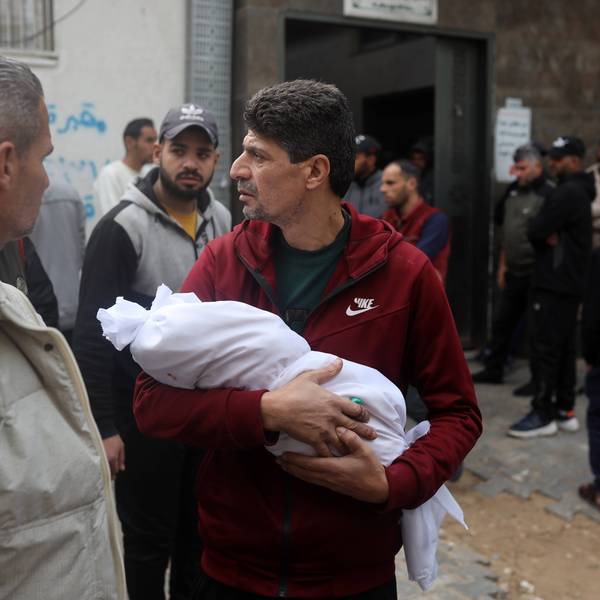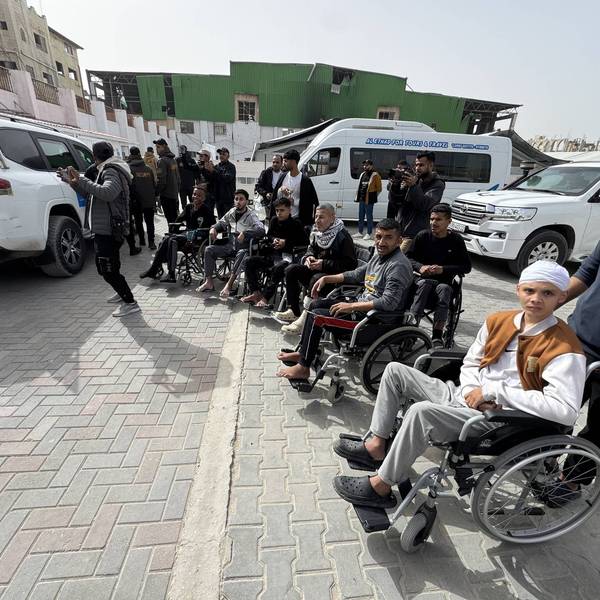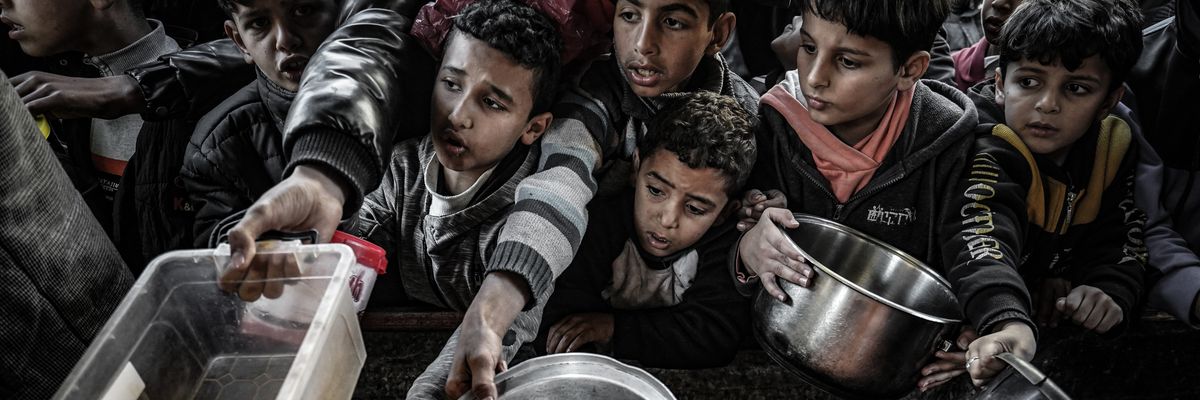A coalition of Palestinian human rights groups issued a joint statement Monday warning of impending catastrophe as Israel's military signaled plans to expand its ground assault to Rafah, the small city near Gaza's border with Egypt where hundreds of thousands of people have sought refuge from Israeli bombs.
Roughly half of Gaza's population of 2.2 million is currently in Rafah, with many living in makeshift tents and struggling to survive without adequate food, medicine, and clean water. The city is so crowded that humanitarian relief officials have said there is just one toilet for every 500 people, conditions that are accelerating the spread of infectious diseases.
The Palestinian Center for Human Rights (PCHR), Al Mezan, and Al-Haq appealed to the international community to intervene and prevent an attack on Rafah, warning that an Israeli incursion "would significantly exacerbate the ongoing genocidal acts perpetrated by the Israeli military and authorities against the Palestinian population in Gaza and blatantly violates the provisional measures order issued by the International Court of Justice on 26 January 2024."
"Recent statements from top Israeli military officials and the observed pattern on the ground strongly suggest an imminent assault on Rafah, reminiscent of the destructive actions witnessed in Khan Younis and throughout northern Gaza in the past four months," the groups said. "Such an attack could result in an unprecedented loss of Palestinian lives."
"The Israeli military has consistently shelled and bombed Rafah from air, sea, and land, with a recent attack killing 17 Palestinians, including children and women," they continued. "Notwithstanding this, a comprehensive ground invasion has not yet transpired. Nevertheless, statements from the Israeli defense minister, which include an expressed intention for Israel to control the border between Gaza and Egypt, coupled with the ongoing bombardments, heighten concerns about the imminent possibility of a ground invasion."
"Everywhere you go, people are desperate, hungry, and terrified."
Late last week, Israeli Defense Minister Yoav Gallant declared on social media that the "Khan Younis Brigade" of Hamas has been "dismantled" and that "we complete the mission and will continue to Rafah."
During a recent visit to Israeli troops in Khan Younis, Gallant said that "we are completing the mission in Khan Younis and we will reach Rafah, as well, and eliminate every terrorist there who threatens to harm us."
The United Nations Relief and Works Agency for Palestine Refugees in the Near East (UNRWA)—whose Gaza operations are at risk of total collapse after the U.S. and more than a dozen other countries cut off aid—said Monday that intense fighting in and around Khan Younis over the past two weeks has forced many Palestinians to "flee further south towards Rafah, which is severely overcrowded." U.N. experts last week described the city as a "pressure cooker of despair."
After visiting Rafah last month, UNRWA Commissioner-General Philippe Lazzarini said that "everywhere you look is congested with makeshift shelters."
"Everywhere you go, people are desperate, hungry, and terrified," said Lazzarini. "People—and this is also something completely new—people are stopping aid trucks, taking the food, and eating it right away. This is how desperate and hungry they are. I witnessed this firsthand."
Israeli officials have said they will attempt to ensure that civilians evacuate from Rafah before any invasion of the city, but it's unclear to where hundreds of thousands of people will be able to safely flee. Israel's military has repeatedly instructed Gazans to evacuate to a certain area—including Rafah—shortly before attacking it.
In their joint statement on Monday, PCHR, Al Mezan, and Al-Haq called on the U.N. Security Council, the head of the U.N., the International Criminal Court, and other global institutions to "utilize all available means to prevent a new Nakba and bring an end to the ongoing Israeli genocide in Gaza."
They also emphasized the "potential complicity" of Israel's allies "in the crime of genocide through unwavering military and political support or failure to prevent genocide."
"We urge them to fulfill their legal obligations, act promptly to protect Palestinians, halt mass killings, and bring an end to the genocidal acts that have persisted for the past four months," the groups said.




